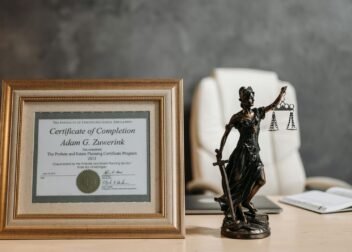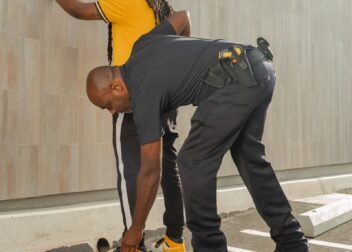Can You Get a DUI Without Driving? The Surprising Truth
Imagine this: You leave a party after a few drinks and decide to sleep in your car rather than drive home. You think you’re making the responsible choice, but then—knock, knock—a police officer taps on your window. The next thing you know, you’re being charged with DUI. How is that even possible when you weren’t driving?
It might seem unfair, but in many states, you can be charged with driving under the influence (DUI) even if you weren’t actively driving. Let’s break down why this happens, what the laws say, and how you can protect yourself.
Understanding DUI Laws: More Than Just Driving
Most people assume that DUI laws require proof that the person was actually driving. However, in many states, the law goes beyond just “driving.” Instead, courts look at something called actual physical control of the vehicle.
What Does ‘Actual Physical Control’ Mean?
The definition of actual physical control varies by state, but generally, it means you have the ability to operate the vehicle, even if you aren’t actively driving. Courts consider factors like:
- Where you are in the car (Are you in the driver’s seat?)
- Whether the engine is running (or the keys are in the ignition)
- Where the keys are located (Are they in your pocket or in the car?)
- Your intent (Were you sleeping or about to drive?)
- The location of the car (Is it parked legally or in a dangerous spot?)
In some cases, even sitting in your car with the keys nearby can lead to a DUI charge.
State-Specific DUI Laws: Key Differences
DUI laws vary widely across the U.S. Some states have stricter interpretations of “actual physical control” than others. Here are a few examples:
- Arizona & Florida: You can be charged with DUI even if you’re sleeping in your car, as long as you have the potential to operate the vehicle.
- New Jersey & Pennsylvania: Courts look at whether there’s evidence of recent driving, such as a warm engine.
- California: Officers need to prove that you actually moved the vehicle while impaired.
If you find yourself in this situation, consulting a DUI attorney in your state is crucial.
Common Scenarios That Can Lead to a DUI (Even If You Weren’t Driving)
Many people are shocked to learn they can be charged with DUI under circumstances like these:
- Sleeping It Off in the Driver’s Seat – Even if you had no intention of driving, police may assume you were about to.
- Pulling Over to ‘Sober Up’ – If an officer finds you intoxicated behind the wheel, they may argue you were in control of the car.
- Sitting in a Parked Car with the Engine Running – If the car is on, it suggests you had the means to drive.
- Being Found in a Car After an Accident – If police arrive after an incident, they may assume you were the driver.
How to Protect Yourself: Avoiding a DUI When You’re Not Driving
If you’re ever in a situation where you need to stay in your car while under the influence, take these precautions to reduce your risk:
- Do not sit in the driver’s seat – Move to the back seat if possible.
- Keep the engine off – A running engine makes it easier for an officer to claim you were in control.
- Put the keys out of reach – Store them in the glove compartment or trunk.
- Park legally – Avoid stopping in an area where your presence could raise suspicion.
While these steps don’t guarantee you won’t be charged, they can help show that you had no intention of driving.
What to Do If You’re Charged With DUI Without Driving
If you’re arrested for DUI but weren’t actually driving, here’s what to do:
- Remain Silent – Anything you say can be used against you.
- Refuse Field Sobriety Tests (If Allowed) – Some states allow you to decline without penalties.
- Request a Lawyer Immediately – Do not answer questions without legal representation.
- Gather Evidence – If possible, document your location, key placement, and witness statements.
A skilled DUI attorney can argue that you weren’t in actual physical control of the vehicle, potentially leading to reduced or dismissed charges.
Conclusion: Know Your Rights, Stay Safe
Being charged with DUI when you weren’t even driving can feel frustrating and unfair. However, the law often considers potential control over a vehicle, not just actual driving. If you ever find yourself in this situation, knowing your rights and taking preventive steps can make a significant difference.
Need Legal Help?
If you or someone you know is facing DUI charges, consult a qualified DUI attorney in your state as soon as possible. Legal representation can mean the difference between a conviction and a dismissed case.
FAQs About Getting a DUI Without Driving
1. Can you get a DUI in your driveway?
Yes. If you’re in the driver’s seat with the keys accessible and are intoxicated, you could be charged, depending on state laws.
2. What if my car was out of gas?
Even if the car won’t start, some states still consider possession of the keys while intoxicated as having “control” of the vehicle.
3. Can you get a DUI on private property?
Yes. DUI laws often apply to private property, including parking lots and driveways.
4. Do I have to take a breathalyzer test if I wasn’t driving?
It depends on the state. Some states have implied consent laws, meaning refusal could lead to penalties.
5. How can I fight a DUI charge if I wasn’t driving?
Your best defense is to prove you were not in actual physical control of the vehicle. A DUI lawyer can help gather evidence to support your case.
Get the Compensation You Deserve After Your Accident
If you’ve been injured in a car crash that wasn’t your fault, don’t settle for silence or confusion. Lawayer.com connects you with› experienced attorneys who can fight for your rights and help you recover what you’re owed. Time matters—take the first step now



